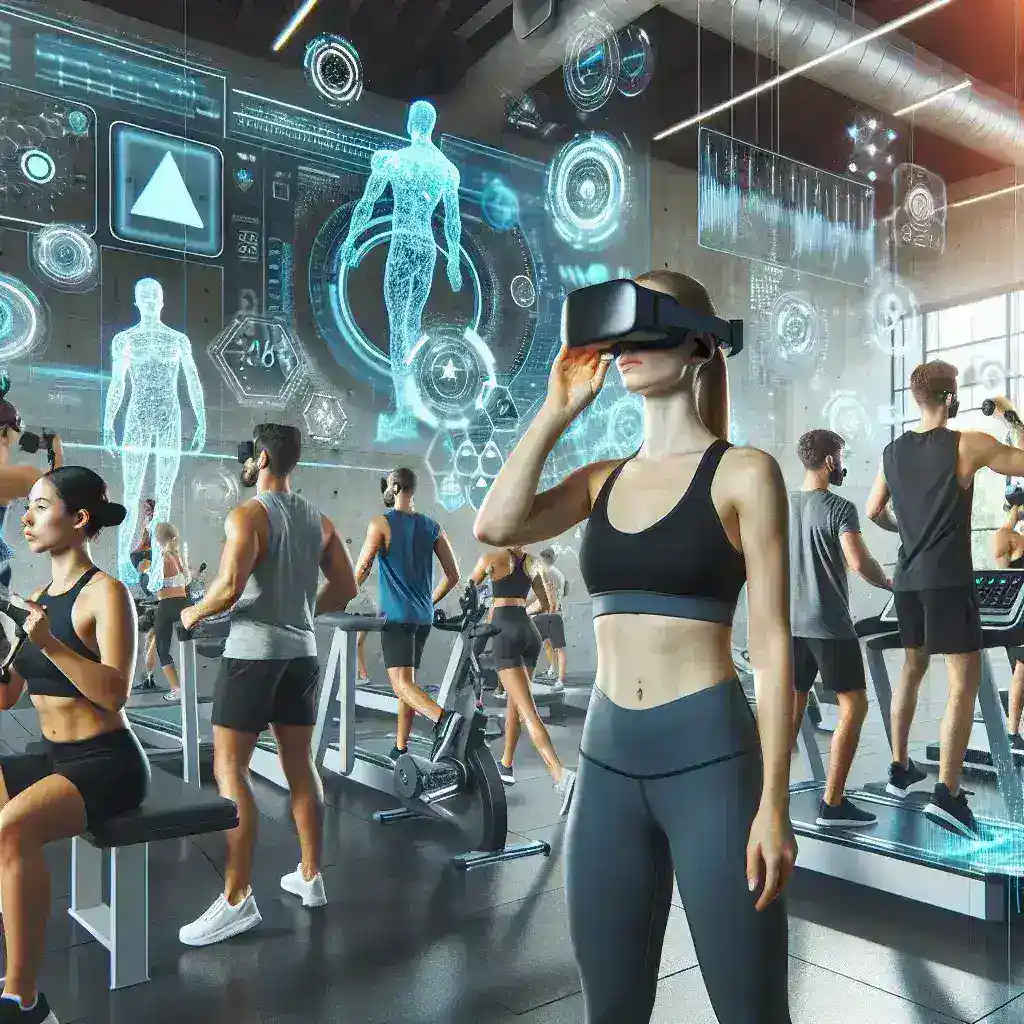Introduction
In a groundbreaking move, Meta has unveiled its latest innovation: AI-powered virtual reality (VR) fitness apps tailored specifically for U.S. gyms. This initiative is set to reshape the fitness landscape by integrating cutting-edge technology that not only enhances workout experiences but also fosters community engagement and accountability among users. As we delve into this transformative development, we will explore its historical context, potential benefits, and future implications for gym-goers and fitness enthusiasts alike.
The Evolution of Fitness Technology
The journey of fitness technology has been a fascinating one, marked by significant milestones. From the introduction of cardio machines equipped with screens displaying workout metrics to the rise of fitness trackers that monitor heart rates and sleep patterns, technology has consistently played a pivotal role in enhancing our fitness routines. However, the advent of AI and VR technologies marks a new chapter in this evolution.
The Role of AI in Fitness
Artificial intelligence has transformed various industries, and fitness is no exception. By leveraging AI, Meta’s new VR fitness apps can analyze user data to provide personalized workout plans, track progress in real-time, and even adapt routines based on performance and preferences. This level of customization promotes better results and keeps users motivated.
Exploring Virtual Reality in Fitness
Virtual reality offers an immersive experience that traditional workouts simply cannot match. With VR, users can transport themselves to exotic locations or compete in virtual environments, making exercise feel less like a chore and more like an adventure. Meta’s integration of VR into fitness allows users to engage in various activities—from cycling through scenic landscapes to practicing yoga on the beach—all within the confines of their local gym.
Key Features of Meta’s New VR Fitness Apps
Meta’s VR fitness apps come packed with features designed to enhance user experience:
- Personalized Workouts: AI algorithms analyze user data to create customized workout regimes.
- Immersive Environments: Workouts take place in stunning VR settings that inspire and motivate.
- Community Engagement: Users can join group workouts, compete in challenges, and share achievements.
- Real-Time Feedback: The AI provides instant feedback on form and technique during workouts.
- Progress Tracking: Comprehensive metrics help users monitor their fitness journey over time.
The Pros and Cons of AI-Powered VR Fitness Apps
Pros
- Increased Motivation: The immersive experience can boost user motivation and adherence to fitness routines.
- Accessibility: Users can engage in high-quality workouts without needing expensive equipment or gym memberships.
- Social Interaction: The community aspect fosters a sense of belonging, crucial for many fitness enthusiasts.
Cons
- Potential Technical Issues: Reliance on technology means that technical glitches could disrupt workouts.
- Initial Cost: The setup for VR equipment may be a barrier for some users.
- Overreliance on AI: Some may become too dependent on AI for motivation and miss out on self-driven fitness.
Real-World Examples and Impact
To illustrate the potential impact of Meta’s AI-powered VR fitness apps, consider the following scenarios:
Case Study: A Gym in San Francisco
A mid-sized gym in San Francisco adopted Meta’s VR fitness technology, integrating it into their existing group classes. Within three months, they reported a 30% increase in class attendance and a significant rise in member engagement. Users highlighted the fun, immersive nature of workouts and the sense of community fostered by virtual classes.
Community Building through Challenges
Meta’s apps encourage users to participate in monthly fitness challenges, with leaderboards that showcase top performers. This gamified approach not only motivates users to push their limits but also builds a supportive community where members cheer each other on.
Future Predictions
As we look to the future, the potential for AI-powered VR fitness apps is vast. Industry experts predict that:
- More gyms will adopt this technology, creating a new standard for fitness experiences.
- Integration with wearable devices will enhance the personalization of workouts further.
- Social features will expand, allowing users to connect with friends and family worldwide.
Conclusion
Meta’s unveiling of AI-powered VR fitness apps marks a significant milestone in the fitness industry. By marrying cutting-edge technology with innovative workout experiences, Meta has the potential to redefine how we approach fitness. As gyms across the U.S. begin to embrace this technology, we can expect to see a surge in motivation, community engagement, and overall fitness levels among users. The future of fitness is here, and it promises to be more exciting than ever.

